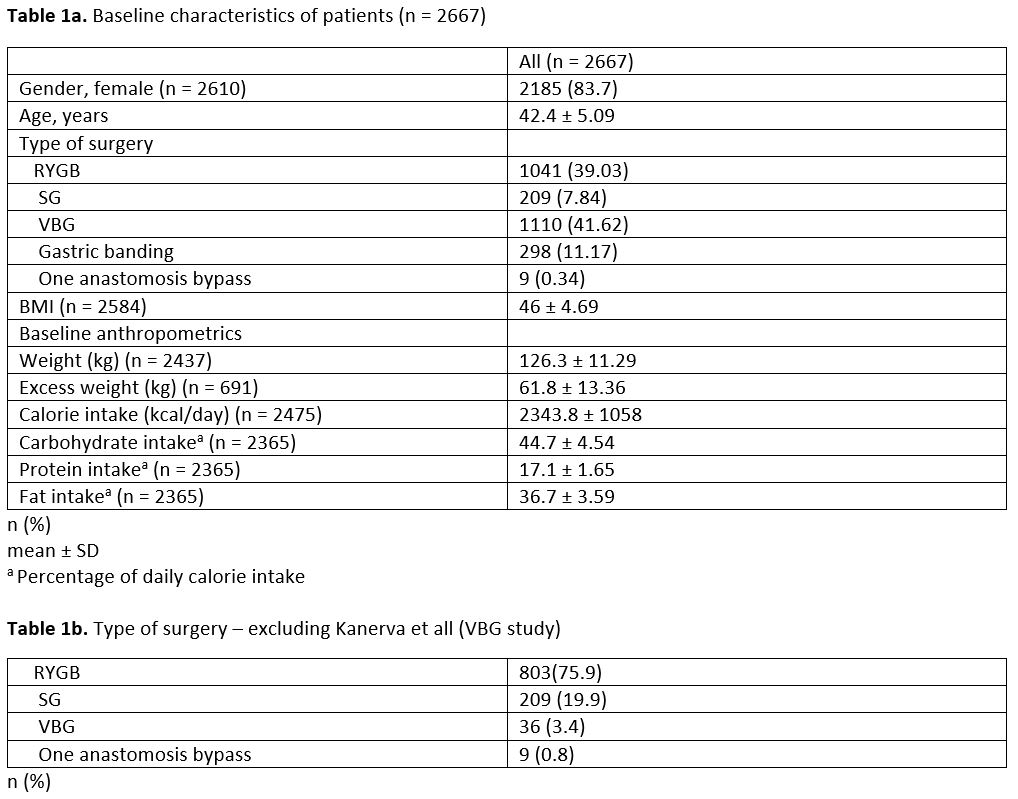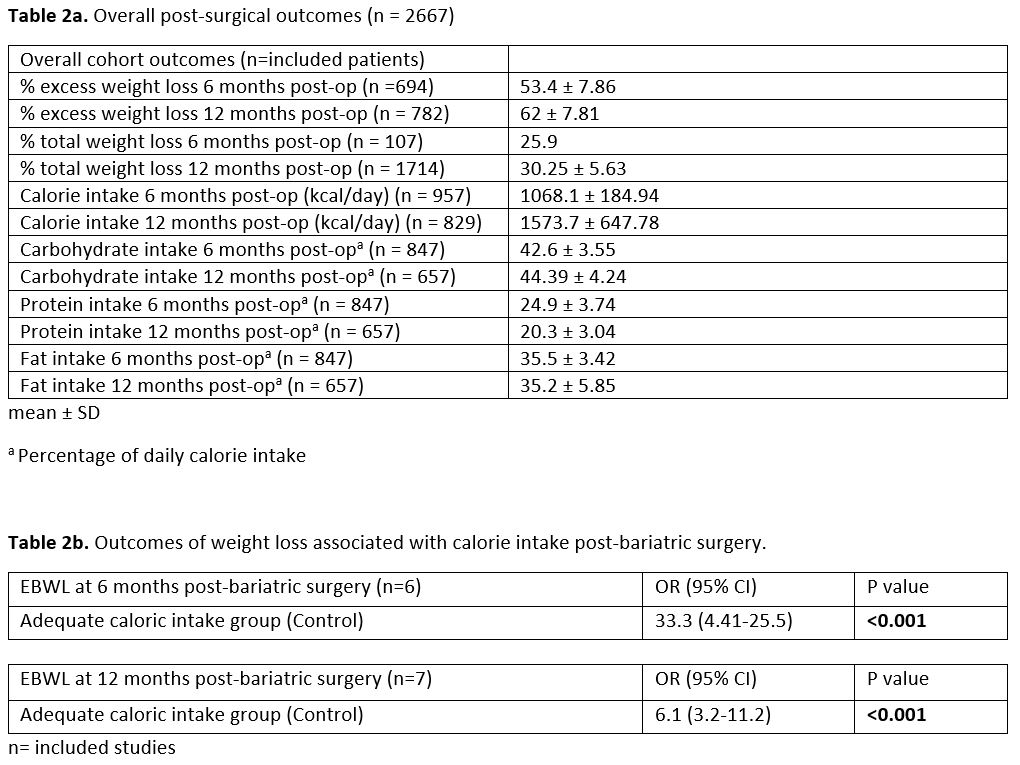Introduction:
Bariatric surgery is one of the most effective treatments for obesity. The nutrition guidelines for pre and post- bariatric surgery include parameters for diet progression and protein intake. The literature is limited and there is no evidence-based consensus on recommended calorie intake following bariatric surgery. The degree of caloric restriction required to provide optimal outcomes after bariatric surgery was investigated in the published literature.
Methods:
We performed a systematic review using a comprehensive search of PubMed/MEDLINE and Embase databases from 1/1989-11/2023. Studies that were included assessed the impact of calorie intake on post-bariatric surgery weight loss. We included patients who underwent bariatric surgery (sleeve gastrectomy, Roux-en-Y gastric bypass, adjustable gastric banding, or vertical banding gastroplasty). Patients were stratified into 2 groups categorized either by adequate caloric intake (>= 1,100 kcal/day) vs inadequate caloric intake (=<1,100 kcal/day) at 6 and 12 months post-op. The outcomes were the pooled % excess body weight loss (EBWL) at 6 months and %EBWL at 12 months post-op. Standard systematic review methods were employed using the random-effects model and logistic regression analysis was performed.
Results:
A total of 2667 patients (13 studies) were included for analysis. Majority of patients were female (83.7%) and mean age was 42.4 ± 5. 1041 patients (39%) underwent RYGB, 209 (7.8%) underwent SG, 1110 (41.6%) underwent VBG, 298 (11.2) underwent gastric banding, and 9 (<1%) underwent one anastomosis gastric bypass. An outlier study contained 1107 VBGs, the frequencies of the surgeries excluding this study are listed in Table 1b. The mean pre-surgical BMI was 46 ± 4 kg/m2. The pre-surgical baseline caloric intake was 2343.8 ± 1058 kcal/day (Table 1a, b). Overall cohort %EBWL was 53.4 ± 7 and 62 ± 7 at 6 and 12 months post-op. Overall post-op caloric intake was 1068.1 ± 184 kcal/day and 1573.7 ± 647 kcal/day at 6 and 12 months respectively. Compared to the inadequate caloric intake group, the adequate caloric intake group had a pooled %EBWL of 62% vs 49.1% at 6 months post-op and 72.2% vs 57.8% at 12 months. The adequate caloric intake group had 6 times higher chance of greater weight loss at 12 months (OR 6.1, CI 95% 3.2-11.2, p<0.001) and 33 times higher change of greater weight loss at 6 months (OR 33.3, CI 95% 4.41-25.5, p<0.001) compared to inadequate caloric intake group (Table 2b).
Conclusions:
This study found that adequate caloric intake correlates with significantly greater weight loss following bariatric surgery. Bariatric surgery programs should continue to encourage proper nutrition and adequate calorie intake post-bariatric surgery to achieve better weight loss outcomes.

